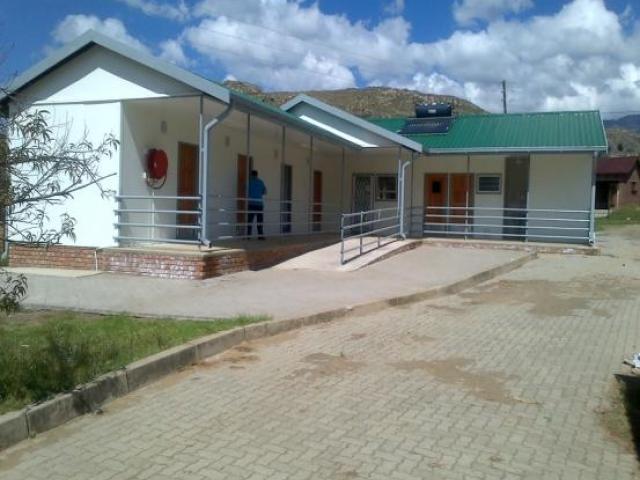The National Department of Health (NDoH) appointed the DBSA as the programme implementing agent (PIA) for technical assistance with the implementation of the National Health Strategic Plan. The plan identified four key outputs namely:
- Increasing life expectancy
- Decreasing maternal and child mortality
- Combating HIV/Aids and decreasing the burden of diseases from TB
- Strengthening health system effectiveness.
The efforts to strengthen and improve the effectiveness of the health system was one of the core reasons for the conception of the National Health Insurance (NHI) system, by which government plans quality and universal health coverage to every citizen regardless of their socio-economic conditions, rather based on the principles of social solidarity, equity and fairness.
The National Health Amendment Act was written into law in 2013. With that followed the establishment of the Office of Health Standards Compliance and the publication of the guidelines and standards for health facilities in South Africa.
The appointment of the DBSA, amongst other implementing agents, is therefore to assist the NDOH in meeting its targets for infrastructure maintenance, refurbishment and upgrades of health facilities to comply with the minimum standards and alleviate the challenges faced by health facilities currently.
Health facilities allocated to the dbsa for implementation
The NDoH allocated the construction of 136 health facilities for maintenance at a cost of R176 million and a total of 102 clinics for the addition of doctors’ consulting rooms at a cost R218 million during the period June 2013 to June 2016 as follows:
|
|
|
|
|
|
|
|
|
|
|
|
|
|
|
|
|
|
|
|
|
|
|
|
|
|
|
|
|
|
|
|
|
|
|
|
|
|
|
|
A further 54 health facilities (27 in Limpopo and 28 in Northern Cape), funded through and with the cooperation of the German development bank KfW, received additional rooms and space for the clinics to meet minimum functionality requirements and provided assistance with health, counselling and testing, at the cost of €10 million.
After the successful completion of the maintenance and refurbishment, from July 2016 NDoH awarded further programmes to the DBSA for refurbishment in the Eastern Cape as follows:
|
|
|
|
|
|
|
|
|
|
|
|
|
|
|
|
|
|
|
|
|
|
|
|
|
|
|
Going forward we envisage a trend where more of the planned projects by NDoH would be for maintenance and refurbishment of existing infrastructure with additions to enhance the infrastructure, rather than entirely new green field projects.
Health facilities completed by the dbsa
The DBSA successfully completed all 136 clinic refurbishment and maintenance and construction of 102 doctors’ consulting rooms. The consulting rooms were built using innovative building technologies (IBT) in order to meet the programme requirements. The DBSA and NDoH opted for a turn-key project in which the contractor was required to manufacture, construct and manage the entire process, inclusive of professional services such as design and supervision of the project.
The relocatable units delivered by the DBSA had the benefit of:
- High delivery speed
- Superior thermal efficiency
- Higher longevity than conventional construction methods
- Higher acoustic control capabilities
- Low operating and maintenance costs – 30% to 50% lower than brick and mortar
- Higher resilience to earthquakes/tremors.

The programme was implemented successfully. The use of Innovative Building Technology (IBT) can accelerate the delivery of infrastructure and should be pursued by government departments. However, the communities and beneficiaries of the infrastructure need to be sensitised in order to accept this forms of alternative buildings.




